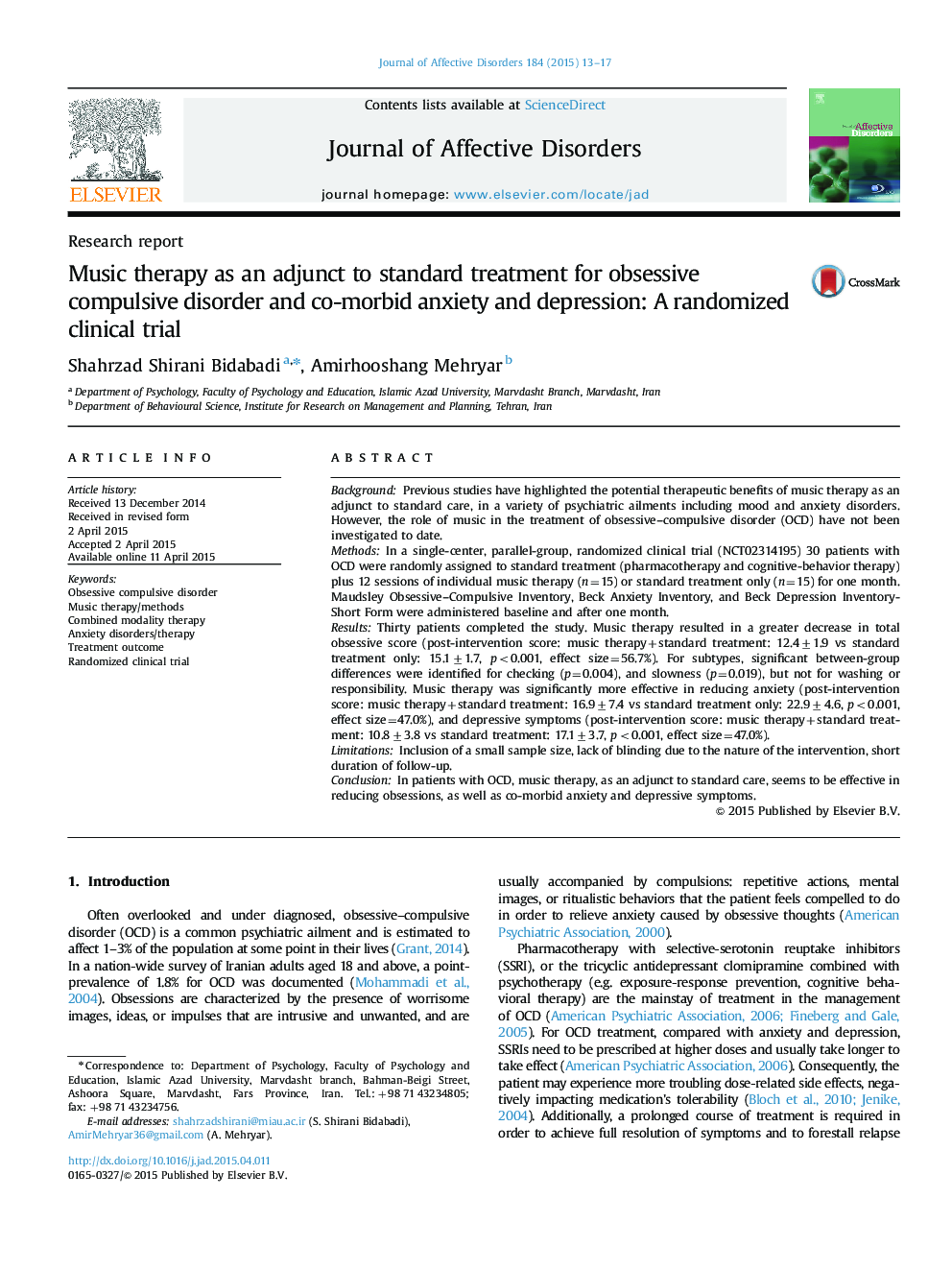| کد مقاله | کد نشریه | سال انتشار | مقاله انگلیسی | نسخه تمام متن |
|---|---|---|---|---|
| 6231232 | 1608141 | 2015 | 5 صفحه PDF | دانلود رایگان |
- Effects of music therapy on obsessive-compulsive disorder are reported.
- Music therapy was added to pharmacotherapy and cognitive behavior therapy.
- Addition of music therapy resulted in a more significant improvement of obsessions.
- Music also yielded therapeutic benefits for co-morbid anxiety and depression.
BackgroundPrevious studies have highlighted the potential therapeutic benefits of music therapy as an adjunct to standard care, in a variety of psychiatric ailments including mood and anxiety disorders. However, the role of music in the treatment of obsessive-compulsive disorder (OCD) have not been investigated to date.MethodsIn a single-center, parallel-group, randomized clinical trial (NCT02314195) 30 patients with OCD were randomly assigned to standard treatment (pharmacotherapy and cognitive-behavior therapy) plus 12 sessions of individual music therapy (n=15) or standard treatment only (n=15) for one month. Maudsley Obsessive-Compulsive Inventory, Beck Anxiety Inventory, and Beck Depression Inventory-Short Form were administered baseline and after one month.ResultsThirty patients completed the study. Music therapy resulted in a greater decrease in total obsessive score (post-intervention score: music therapy+standard treatment: 12.4±1.9 vs standard treatment only: 15.1±1.7, p<0.001, effect size=56.7%). For subtypes, significant between-group differences were identified for checking (p=0.004), and slowness (p=0.019), but not for washing or responsibility. Music therapy was significantly more effective in reducing anxiety (post-intervention score: music therapy+standard treatment: 16.9±7.4 vs standard treatment only: 22.9±4.6, p<0.001, effect size=47.0%), and depressive symptoms (post-intervention score: music therapy+standard treatment: 10.8±3.8 vs standard treatment: 17.1±3.7, p<0.001, effect size=47.0%).LimitationsInclusion of a small sample size, lack of blinding due to the nature of the intervention, short duration of follow-up.ConclusionIn patients with OCD, music therapy, as an adjunct to standard care, seems to be effective in reducing obsessions, as well as co-morbid anxiety and depressive symptoms.
Journal: Journal of Affective Disorders - Volume 184, 15 September 2015, Pages 13-17
